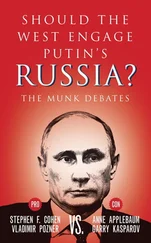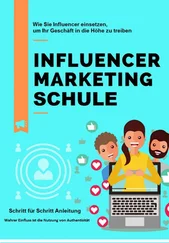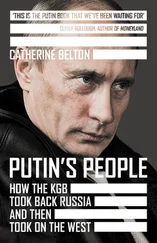As mentioned earlier, one of Putin’s comrades in Directorate S has written a book about those Dresden years under the title Co-worker. Its author, Vladimir Usoltsev, was something of an oddball among KGB officers, for he had a Ph.D. in physics, a fondness for classical music, and a bent for literature. His book, though of some value as the only close-up of Putin from those years, must be taken with several grains of salt, since KGB agents are trained to have a utilitarian attitude toward the truth, or, to put it more bluntly, they are liars by trade. The author stresses that Putin was, as a type, completely ordinary but had a persona that could be quite charming, especially with older men, which later may have helped win Yeltsin’s approval to replace him as president. Like everyone else he was a “conformist” who thought one thing, said another, and did yet a third. He was reserved but good-humored, and would easily pass the American political test of being a guy you’d like to go out for a beer with. He was hardworking, very focused, with a tendency to tardiness and untidiness with papers, of which there were so many. Later, as president, he would keep the pope waiting.
Directorate S was small, just six officers and their leader. As luck would have it, three of the six were Vladimirs, nickname Volodya. To keep things straight, Putin became Little Volodya because he was small compared to Big Volodya, the author of Co-worker . The third was, for obvious reasons, Volodya Mustache. In his memoirs Big Volodya compares their world to the cramped quarters of a spacecraft with an intimacy that could be cordial or “hellish.” [118] Usoltsev, Sosluzhivets , p. 53.
Big Volodya and Putin became friends, drinking buddies, confidants. From time to time Putin would surprise his friend by displaying a “dissident” point of view. He disliked the anti-Semitism that in the KGB was as customary as a slice of herring with a shot of vodka. Putin spoke warmly of Jewish neighbors, teachers, trainers, fellow athletes. He was also very pro-Sakharov, who had just been released from six years of internal exile by Gorbachev in 1986. In this account Putin even supported Sakharov’s position that the West should have military superiority over the Soviet Union, saying with ironic humor: “Don’t forget that we don’t have to be afraid of the West, but they have every reason to be afraid of us, and only the West’s clear military superiority can make the totally unbridled leaders in the Kremlin see reason.” [119] Ibid., p. 185.
He spoke that way only with Big Volodya—when others were around he took the standard anti-Semitic line that Sakharov was controlled by his Jewish wife, Elena Bonner. Still, even in those conversations Big Volodya thought he could detect a light irony in Putin’s voice and expression.
Trained in jurisprudence, Putin was a staunch defender of Law. He also stood up for the market, the right of inheritance, and private property, which he called a “natural element of the human personality.” [120] Ibid., p. 166.
Without coming out in favor of religion, Putin expressed the belief that science could never explain everything, which irked Big Volodya, a physicist by training, who noticed that Putin’s secret childhood baptism seemed to mean a lot to him. Both Volodyas found Germans more civilized than Russians because they knew how to genuinely enjoy themselves, unlike Russians, who, as Putin put it, “if there’s a holiday have to get dead drunk and punch someone in the face.” [121] Ibid., p. 201.
That wasn’t always the case. One night, General Horst Böhm, the young, ambitious head of the Dresden Stasi, had too much to drink and suddenly opened up. He complained bitterly of the direction the USSR was taking under Gorbachev. Stalin, he said, was the incarnation of Communism, and his path should have been followed. Brezhnev tried but was too weak. Böhm himself did not long survive the collapse of East Germany. In early 1990, about to be called to testify in hearings about the future of the country, he was found dead of a bullet wound in his office. His death was ruled a suicide.
Putin’s time in Dresden coincided almost exactly with the period of perestroika and glasnost in the Soviet Union. His experience of those powerful forces would have been quite different if he had been in Russia, but he might have been more hostile to them there. That doesn’t mean the great changes passed him by in Dresden. In fact, developments were followed closely in Dresden both through West German magazines like Der Spiegel and Stern and in Soviet periodicals, which grew bolder by the week. A few of the Stasi were jealous—they might have bananas in East Germany, but Russians were getting something more valuable: real information and the chance to change.
What also quickly became clear was what Andropov had seen from his window in Budapest in 1956 when gazing at the security officers hung from lampposts: free discussion leads directly to sedition.
Forces too mighty to control had been set loose. The Berlin Wall would soon be breached. The Center, as the KGB called their Moscow headquarters, was not holding. Soon enough the acrid smell of defeat was in Putin’s nostrils—the smell of documents burned in frantic haste: “We destroyed everything—all our communications, our lists of contacts and our agents’ networks,” says Putin. “I personally burned a huge amount of material. We burned so much stuff that the furnaces burst.” [122] Putin, First Person , p. 76.
The unthinkable became commonplace. One day the East Germans are ransacking the Ministry of Security, the next they’re surrounding Soviet KGB headquarters on Angelikastrasse. As Putin put it: “We were forced to demonstrate our readiness to defend our building.” Putin went out and addressed the raging mob. Usoltsev says that Putin grabbed a Kalashnikov; Putin mentions only that he was accompanied by bodyguards. In either case, the defenders’ “determination certainly made an impression on them, at least for a while.” [123] Ibid., p. 78.
But only a while. The crowd started becoming aggressive again. Putin called for military backup and was told: “We cannot do anything without orders from Moscow. And Moscow is silent.” [124] Ibid., p. 79.
A few hours later Soviet troops did arrive and disperse the crowd. But the incident was profoundly disturbing to Putin. “That business of ‘Moscow is silent’—I got the feeling then that the country no longer existed. That it had disappeared … and had a terminal disease without a cure—a paralysis of power.” [125] Ibid.
With a beer gut, two kids, and a used car, Putin returned to the USSR in January 1990. His prospects were few and bleak. Perhaps he could get into some sort of law collective. Or maybe drive a cab.
The lowest card that wins the current game is worth more than the highest that won an earlier one.
—BALTASAR GRACIÁN
[126] Baltasar Gracián , The Pocket Oracle and Art of Prudence , quoted in Lapham’s Quarterly 9, no. 3 (Summer 2016), p. 171.
4
RUSSIA’S FALL, PUTIN’S RISE
Blaming Russia for a lack of democracy is similar to complaining about not being able to buy alcohol in Saudi Arabia.
—JAKUB KOREJBA
[127] Jakub Korejba, “Democracy? No Thanks!”; New Eastern Europe , January–March 2013.
In January 1990 when Putin returned home, the USSR was still the USSR, Leningrad was still Leningrad, and he was still KGB. None of that would last another two years.
Читать дальше
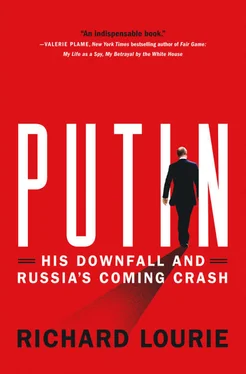

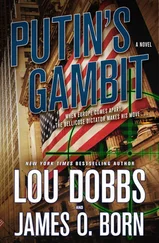
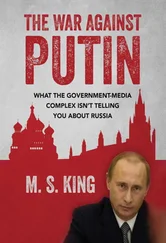
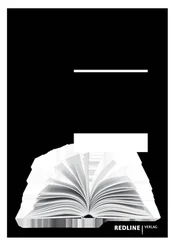
![Stephan Orth - Behind Putin's Curtain - Friendships and Misadventures Inside Russia [aka Couchsurfing in Russia]](/books/415210/stephan-orth-behind-putin-s-curtain-friendships-a-thumb.webp)

